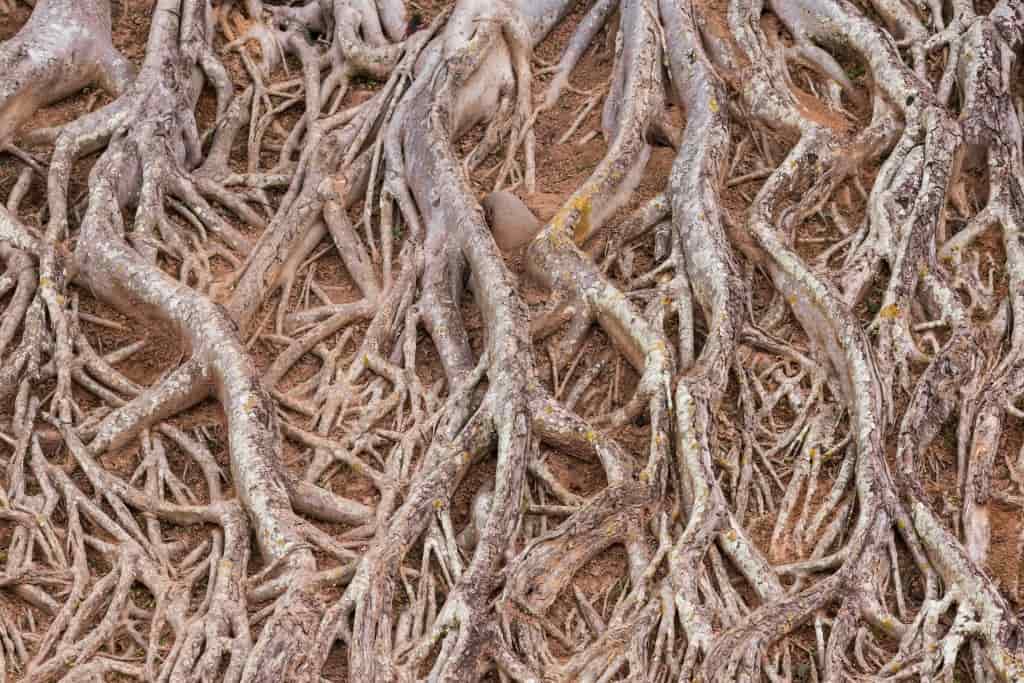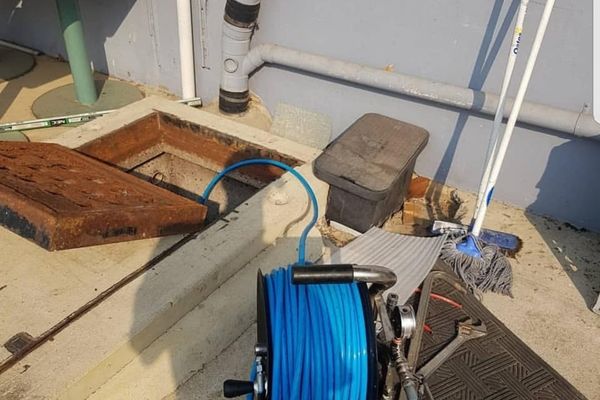You don’t need us to tell you that dealing with a blocked drain is never fun – especially when tree roots are the culprit. If you’ve clicked your way here, you’re no doubt wondering whether chemical root killer might be the right solution for your drainage headache. We get it – the last thing you want is a slow-draining sink, let alone water backing up and grinding your plumbing system to a halt. The good news is that root killer really can help when used correctly and in the right scenario – but it’s not always the one-size-fits-all fix.
Let’s dive into what drain root killer does, how it works, and when you should consider using this powerful chemical concoction to clear up those pesky root invasions:
What is root killer – And how does it work?
Root killer is a range of chemical products designed to eliminate tree roots that have sneakily and rudely made their way into your precious and important drain pipes. These root kill chemicals can dissolve or eliminate the roots completely, breaking down the blockage and preventing further growth.
Here are a couple of root killer types:
Copper sulphate root killer: This type works by dehydrating the roots, causing them to die and break down over time. It’s commonly used in sewer root killer applications and works well for long-term maintenance.
WARNING: It can be harmful to plants if used near tree roots that you want to keep healthy!
Foaming root killer: This category of products create foam that expands to coat the entire pipe, killing roots on contact while also forming a protective barrier to prevent future growth. It’s ideal for more extensive root problems where the roots have grown throughout the pipe.
WARNING: Improper use can lead to foam overflow or harmful environmental impact if not applied according to the instructions.
As you can see, both types of root killer can be effective, but they also come with risks and limitations. Here are a few pros and cons to help you weigh your options:
THE PROS:
- Can be a cost-effective DIY solution for minor root issues
- Relatively easy to apply, with clear instructions on most products
- Can help prevent regrowth and maintain clear drains over time.
THE CONS & CAUTIONS:
- Tree root killer for drains may not resolve severe or recurring blockages
- May harm nearby plants or trees if used incorrectly
- Copper sulphate root killer may be restricted in some areas due to environmental concerns
- Overuse can damage your pipes, especially if they’re older or already compromised.
How to know when to use root killer: A atep-by-step guide
Before dashing out right now to buy a root drain cleaner from a hardware store, plumbing supply outlet or online, take these steps to ensure it’s the right choice for your situation:
1. Identify the cause of the clog
Not all blockages are caused by tree roots, so it’s important to first determine the nature of the blockage. While roots are a common issue, other things like grease buildup, non-flushable items, or pipe collapse can also cause clogs.
If you’re not sure whether tree roots are to blame, consider getting a professional drain inspection to confirm the problem.
2. Look for early signs of root invasion
Tree roots usually invade your drains without you even realising it. Some early symptoms include:
- Slow-draining water
- Gurgling sounds
- Recurring blockages in the same spot.
Noticing these signs? There’s a good chance you might need to kill roots in drains with a chemical root killer. Don’t forget: Catching the problem early can save you from more extensive (and much more expensive!) repairs down the line.
3. Evaluate the severity of the problem
A root killer for drains is usually effective for minor to moderate root intrusions. If the problem is severe – like when the roots have caused significant pipe damage or blockages are happening frequently – you may need more thorough and professional solutions like high-pressure water jetting.
In such cases, using a sewer root killer might only provide temporary relief rather than a permanent fix.
4. Choose the right type of root killer
Carefully selecting the right root killer depends on the severity of the root problem and the specific conditions of your drain:
- Copper sulphate root killer: It’s best used in sewer lines or situations where you can ensure that it won’t harm nearby vegetation. It’s also effective at killing roots but may take time to work.
- Foaming root killer: Ideal for more aggressive root growth because it expands to coat the entire pipe. It’s great for areas with large root invasions and helps prevent new growth. Tree root killer for drains in this form is often more efficient for DIY solutions.
5. Follow the instructions carefully
Each product has very specific directions on how to apply it safely and effectively. Improper usage can not only harm your pipes but also pose risks to the environment. Make sure to read and follow the label closely, and consider wearing protective gear – especially if handling a copper sulphate root killer.
6. Watch for warning signs & know when to stop
If you’ve used a tree root killer for drains but the symptoms haven’t improved, it may indicate a more serious problem requiring professional attention. Continuing to use root killer in such cases may damage your plumbing system further.
7. Know when to call a professional
Sometimes, a root drain cleaner just isn’t enough. If you’ve tried using a root killer and the blockage hasn’t resolved, or if the problem keeps happening over and over, it’s time to call in the pros for more than just a quick fix.
Drain Masters Plumbing can provide a thorough inspection with high-tech equipment, identify the cause of the clog based on years of experience and training, and offer more effective solutions such as:
- Root cutting
- Hydro jetting
- Pipe relining and much more.
Need something more powerful than root killer?
Yes, using root killer can be an effective way to clear tree roots from your drains – but it’s not always the best or final solution (and sometimes it just doesn’t work at all!). When applied correctly and at the right time, root killer products really can help prevent minor root issues from turning into major problems. But if you find yourself dealing with recurrent blockages or damaged pipes, don’t hesitate to reach out for professional assistance.
When your root problems go beyond a simple DIY fix, call the friendliest and most specialised drainage plumbers right here at Drain Masters Plumbing right now. We’re always right here to help with any root-related drain issues to keep your plumbing in tip-top shape, whether you’re experiencing Gold Coast drain blockages or blocked drains in Tweed Heads and beyond! Give us a shout today for every single plumbing headache.






